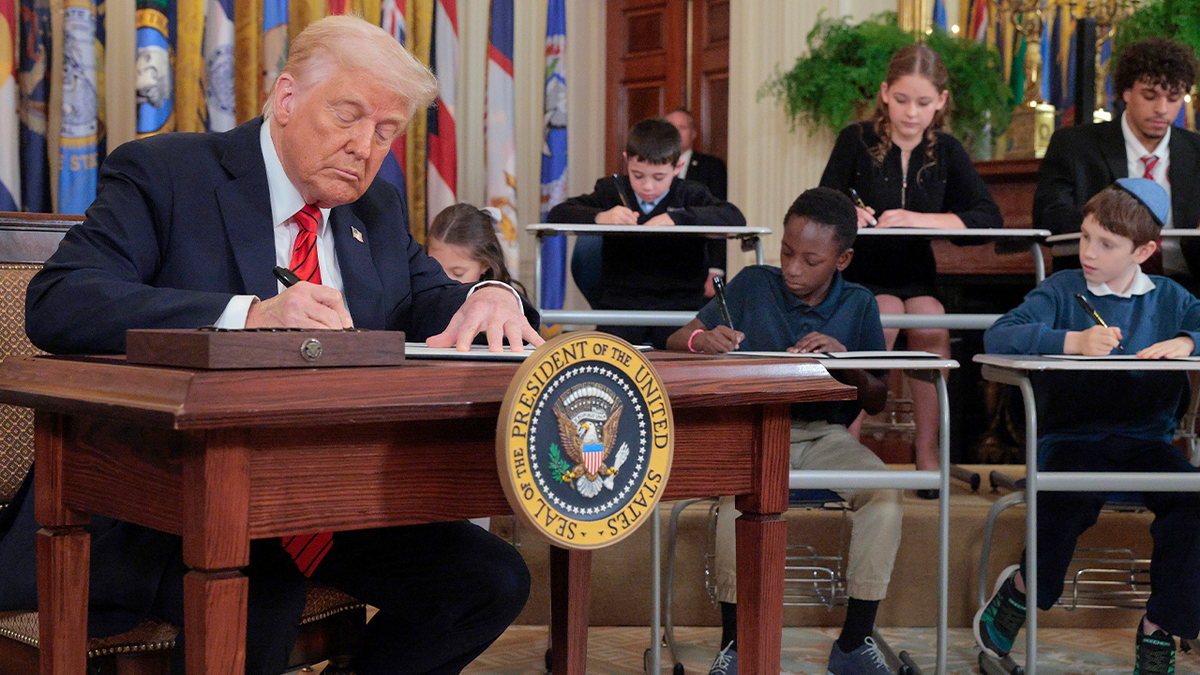The Department of Education is poised to resume collections on defaulted federal student loans in May for the first time since 2020.
While the first Trump administration paused referring federal student loans to collections in March 2020 at the onset of the COVID-19 pandemic, the extended lapse has prompted Trump administration officials to worry that the federal student loan portfolio is “headed toward a fiscal cliff if we don’t start repayment in collections,” according to a senior department official.
“The result has been that the federal government student loan portfolio has continued to grow, and we’ve got a record number of borrowers that are at risk of, or in delinquency and default,” the senior department official told reporters Monday.
The official said that only 40% percent of borrowers are up to speed on their loan repayments, while the remaining 60% are behind.
STAFFING REDUCTIONS AT EDUCATION DEPARTMENT HAVEN’T HIT FAFSA OFFICE AMID TRUMP CUTS, AGENCY SAYS
Altogether, the official said that there are four million borrowers who are in the late-stage delinquency stage on payments — meaning that they are between 91 days and 180 days late on payments.
“The Trump administration, current administration, believes that American taxpayers can no longer serve as collateral for student loans,” the senior department official said. “Student loan debt must be paid back.”
Likewise, the official said the agency would roll out a communications plan to let borrowers know their status and encourage them to enroll in auto-debit to drive down the number of delinquent borrowers.
The policy takes effect May 5, when the Education Department will partner with the Treasury Offset Program to start collecting overdue payments.
The official also said the Department of Education is preparing to partner with lawmakers on efforts to reform higher education and the student loan repayment system in place.
“Going forward, we totally believe that Congress has a role to play in fixing the higher education system that puts students in a position where they can afford their loan payments,” the senior department official said. “So we’re looking forward to working with Congress on their efforts to streamline loan repayment, as well as lowering college costs.”
Bipartisan legislation in the works includes the Employer Participation Repayment Act, which Sens. John Thune, R-S.D., and Mark Warner, D-Va., introduced in February that would make permanent a provision set to expire in 2026 authorizing employers to contribute up to $5,250 tax-free to their employees’ student loans.
Reps. Nicole Malliotakis, R-N.Y., and Scott Peters, D-Calif., introduced the legislation in the House.
TRUMP STILL NEEDS CONGRESS’ HELP WITH PLAN TO ABOLISH EDUCATION DEPARTMENT

Nearly 43 million student borrowers have federal student loan debt — amounting to an outstanding federal student loan balance of $1.6 trillion, according to data from the Department of Education.
The Department of Education’s announcement comes after the Trump administration unveiled plans in March to overhaul the agency, aligning with campaign promises from the president to eliminate the federal government’s influence over education to “stop the abuse of your taxpayer dollars to indoctrinate America’s youth.”
Even so, President Donald Trump announced that functions of the department overseeing Pell Grants, student loans, and others that provide services for those with special needs would continue at other agencies.
Read the full article here

